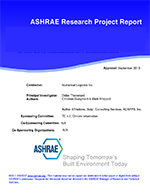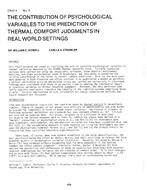A laboratory ventilation system should limit the spread of contaminants and quickly purge the chemicals from a lab space to bring the concentrations at or below certain acceptable level. This study with the help of transient isothermal Computational Fluid Dynamics (CFD) analysis evaluates effectiveness of a laboratory ventilation system using two measures, namely, Spread Index (SI)TC and Purge Time (PT)TC. (SI)TC quantifies how much of the lab volume is covered by an unacceptable level of concentration which is presumably the high risk concentration threshold (TC). Whereas (PT)TC evaluates how much time it would take to purge the contaminants from the lab space to bring those concentration levels at or below the acceptable limit. The practical use of these indices are demonstrated by comparing the performance of two ventilation systems with two and three exhaust grills configurations. These analyses show (SI)TC increases with the release of chemicals and reaches its peak until the release is stopped whereas (PT)TC depends on the nature of the spread of contaminants. This analysis showed the distributed exhaust strategy with three exhaust grills significantly reduced the (SI)TC values resulting in reduced concentration levels and chemical exposure (dose) of occupants. This study further indicates in spite of the well mixed airflow patterns the contaminant distribution especially in the breathing zone of the occupants is highly non-uniform. Interestingly the occupant closer to the exhaust grills shows high level of exposure than the one closer to the contaminant source. Therefore, control of lab environment by monitoring the concentration levels in the exhaust duct can compromise the safety of some occupants by under predicting their chemical exposure (does).
Citation: 2018 Annual Conference, Houston, TX, Conference Papers
Product Details
- Published:
- 2018
- Number of Pages:
- 8
- Units of Measure:
- Dual
- File Size:
- 1 file , 850 KB
- Product Code(s):
- D-HO-18-C043


